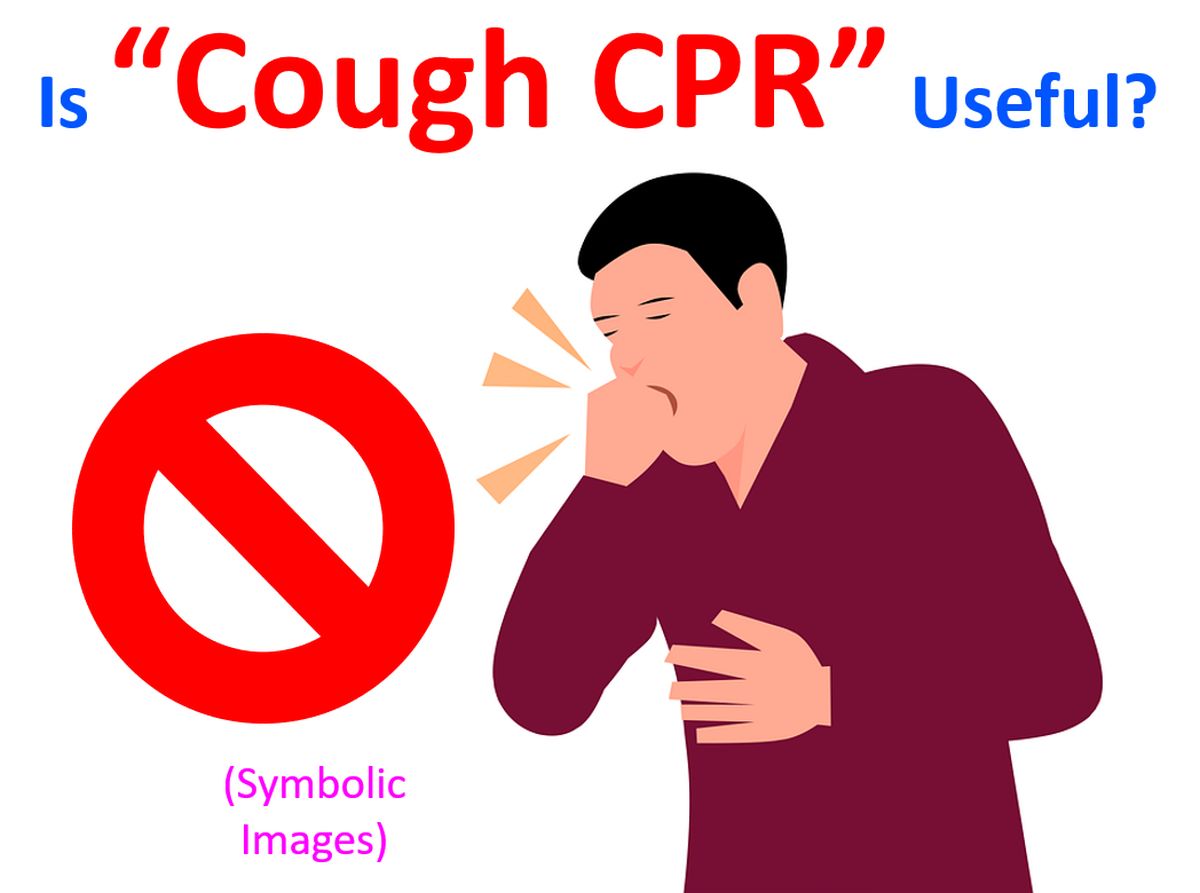Is “Cough CPR” Useful?
Is “Cough CPR” Useful?
Cardiopulmonary resuscitation or CPR, is done to maintain breathing and circulation in cardiac arrest. Usual CPR needs another person do chest compression and artificial respiration for the cardiac arrest victim who is uncoscious. Coughing increases intrathoracic pressure and squeezes some blood out of the heart into the aorta. Theoretically one can remain conscious if one continues to cough during a cardiac arrest. Practically it seldom works as the loss of consciousness in cardiac arrest is very fast so that the individual seldom recognizes cardiac arrest at the onset. Please note that heart attack, which usually causes chest pain is different from cardiac arrest, though heart attack sometimes cause cardiac arrest.

This method is routinely used during cardiac angiography when heart is seen slowing down on the ECG monitor. The subject is asked to cough repeatedly to maintain circulation. The heart rate picks up soon. It also buys time to administer drugs to increase the heart rate if the heart rate does not pick up spontaneously. Here it is a monitored situation when the operator sees the slowing of heart rate and asks the subject to cough. Moreover it is only a transient fall in heart rate which is often self limited, unlike the usual cardiac arrest which is most often due to ventricular fibrillation, which is not reversible unless a direct current shock is given.



